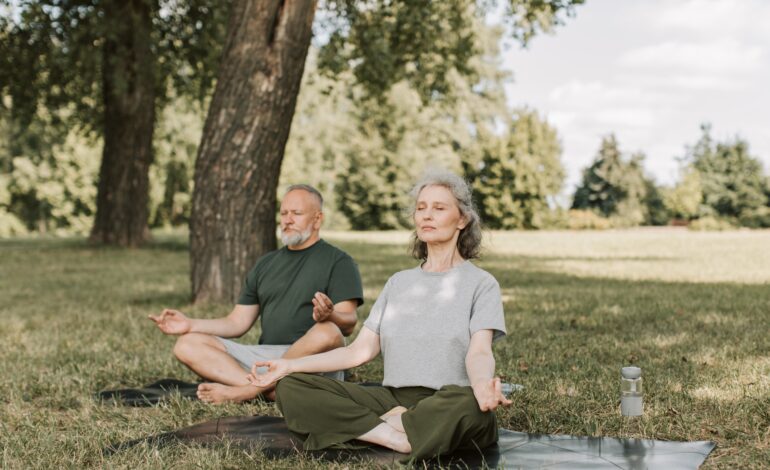
We all know that exercise is good for us. And we know that getting out into nature is good for us. But what if we were to tell you that doing both of those things could have a profound impact on both your fitness and your wellness?
It’s true! When you combine the benefits of exercise with the benefits of being in nature, the results are astounding. Here are several ways outdoor activities contribute to overall well-being:
Physical Fitness
If you’re looking to stay in shape, one of the best ways to do it is by getting outside. You don’t have to run a marathon or start training for an Ironman—you can stay fit with activities that are fun and convenient.
Outdoor activities provide opportunities for physical exercise, helping to improve cardiovascular health, build strength, enhance endurance, and maintain a healthy weight. Activities such as hiking, biking, running, swimming, and team sports are great examples of outdoor activities that promote physical fitness.
Mental Health
Spending time in nature and engaging in outdoor activities has been shown to have numerous mental health benefits. It reduces stress, anxiety, and depression while improving mood and self-esteem. The combination of physical activity, fresh air, and exposure to natural environments can have a positive impact on mental well-being.
A study conducted by the University of Essex found that spending time in green space can help people feel less lonely and depressed. The same study found that exposure to nature can also improve cognitive performance by reducing stress levels.
Studies have shown that spending time outdoors can reduce symptoms of ADHD in children. Children with ADHD who spend time playing outside tend to show improved attention spans when compared to those who don’t play outside as often.
Another study found that individuals with depression who were given guided walks through a forest showed significant improvement in their condition after just two weeks compared to those who were given walks through urban areas or no walks at all.
Vitamin D Intake
The best way to get enough vitamin D is by getting outside. Vitamin D, also known as the sunshine vitamin, is naturally produced by your body when exposed to sunlight. So even if you’re not spending a lot of time in the sun, it’s important to spend time outdoors—that way you can get all the benefits of vitamin D.
Vitamin D supports bone health, immune function, and overall well-being. If you don’t get enough from the sun, there are other sources of supplemental vitamin D that you can take into account when taking care of your health.
Stress Reduction
You know that feeling of stress that can creep up on you and make you feel like it’s hard to breathe? Or the anxiety that makes your heart race and your hands shake?
It feels like there’s no way out. But there is. There are plenty of ways to help reduce cortisol levels (the stress hormone) and provide a sense of tranquility and relaxation. One of the best ways to do this is by immersing yourself in nature.
When you’re outdoors, it’s easier to tune into the natural rhythms around you—the sound of birds chirping, the breeze blowing through the trees, or the sun shining down on your face as you walk through a park or along a beach. You can also choose an outdoor activity that allows you to focus on something other than what’s going on at work or home (like running or hiking).
When we are able to relax and focus on something other than our problems, our bodies begin to release endorphins, which are chemicals that act as natural painkillers and also help us feel happy.
Improved Sleep
Have you ever wondered why you feel tired after a long day at work or school? It might be because of your circadian rhythm. Circadian rhythms, which are biological processes that occur in all living things, are responsible for regulating sleep, wakefulness, and other aspects of our health and wellbeing. These rhythms are regulated by exposure to light, and they’re influenced by the amount and type of light we’re exposed to throughout the day.
Since circadian rhythm is affected by the amount of light we receive during the day, it’s important to get enough exposure to natural light during daylight hours—especially if you work indoors all day long! This can be done by taking breaks outside when possible and getting outside for at least 30 minutes every morning before heading into work or school.
By doing this regularly, you’ll help regulate your body’s internal clock and improve sleep patterns overall!
Social Interaction
Sports and outdoor activities are a great way to connect with people, build strong relationships, and feel like you belong in your community. Group sports are a great way to get to know other people because you’ll be spending time together outside of work or school—and it’s fun! You might even make some new friends.
If you’re looking for something that doesn’t involve running around outside, try joining a team sport at your local recreation center. You can play volleyball or basketball with others who share your interest in sports.
If you’re more of an individualistic sort of person, consider signing up for individualized activities like rock climbing or kayaking. These activities allow you to spend time alone while also connecting with other people through shared interests in nature and adventure.
Cognitive Benefits
It’s no secret that spending time outdoors is good for you. It can help you relax, get more exercise, and even improve your mood. But did you know that outdoor activities can also boost your mental performance?
Research shows that spending time in natural environments improves your attention, memory, and overall cognitive performance. Outdoor activities are great for the brain because they stimulate it and provide opportunities for physical activity—both of which can help you stay sharp as you get older.
And if you’re interested in exploring this idea further, I recommend reading “Walking: The Ultimate Exercise” by Harvard Medical School Professor John Ratey. He discusses how walking has been shown to improve memory and enhance creative thinking skills among seniors who participated in a study on the topic.
So there you have it! You now know all the benefits of going outside. Remember to choose outdoor activities that suit your interests, abilities, and local environment. Always prioritize safety by wearing appropriate gear, staying hydrated, and being mindful of any potential risks associated with the activity. Enjoying outdoor activities regularly can contribute significantly to your fitness, well-being, and overall quality of life. And who knows? Maybe you’ll even meet someone new!
RUCHI RATHOR Founder & CEO
Payomatix Technologies Pvt. Ltd.
FOUNDER AND INVESTOR | PAYMENTS PROCESSING EXPERT | MERCHANT ACCOUNT SOLUTIONS | WHITE LABELLED PAYMENT GATEWAY | Dreamer, Creator, Achiever, Constantly Evolving
Website Ruchi Rathor: https://ruchirathor.com
Website Healing Heart https://thehealingheart.me/
Instagram https://www.instagram.com/_ruchirathor_/
LinkedIn https://www.linkedin.com/in/ruchirathor12/
Facebook https://www.facebook.com/ruchi.rathor.magnificient
Tumblr https://www.tumblr.com/blog/ruchirathor-thehealingheart
Medium https://medium.com/@ruchirathor_23436









